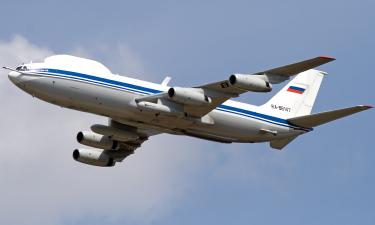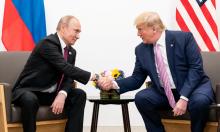Argentina, one year after the popular rebellion - 21 December, 2002
People commemorated last year uprisings. Stories of frustration and hope.
With marches, demonstrations and pickets all over the country, Argentineans marked the first anniversary of the uprisings that toppled former President Fernando De la Rua. Amid a spectacular police deploy, different unions, leftists parties, social and Human Rights organisms participated in demonstrations and cultural activities as a way to "keep on burning people's flame."
"We came here to commemorate the heroic deeds of Argentine people and to fight against impunity as the 32 assassinations committed by the police in December last year remain unpunished", said to PRAVDA.Ru, picketer leader Luis D'Elia.
We face a very serious situation in the provinces. For example, in Santa Fe where the repressive forces killed nine, but the Minister of Public Safety and the Chief of Police are still in office. We want them out", added D'Elia.
Neighbors of Buenos Aires organized pot-banging protests on the streets and for some time, the city looked like on December last year. Hundreds spent the night in Plaza de Mayo, in front of Government's Palace, waiting for picketer marches, who started arriving in the square by noon. By the evening, over 60.000 protesters peacefully joined claiming for President Duhalde resignation, jobs, against IMF and US policies and in support of Chavez on Venezuela's crisis.
However, little has changed this year. Unemployment went up to 21%, inflation grew as a consequence of the currency devaluation and after a year 2000 in 0.4%, reached 40.7% in 2002. This gained international visibility, when local press denounced malnutrition cases in many provinces and death of dozens of children, thereof.
"People is concerned because they (the Government) are starving our children. We need to change", said Victor De Gennaro, trade unionist leader and head of the Central of Argentine Workers - CTA -.
Buenos Aires, city of immigrants, has personal stories that reflect how is to live in a country lashed by unemployment, recession and inflation.
Aleksandra Zakharova is a good example of this. She is Russian from, Yevpatoria, Crimea. She came to Argentina together with her family to find opportunities of progress after considering nothing else could be done in Ukraine. Sasha teaches Russian in Buenos Aires and her sister, Dasha, started working as model.
"We had crisis in Ukraine, but we did not see such protests, there. Here is different." Says Sasha. When they arrived in Argentina, they could change pesos into dollars, one to one. Therefore, could assist their Grandmother, who decided to stay in Yevpatoria. "Since last year events, we could not send any money to Ukraine, as it is very hard to accumulate enough pesos to change them into a good amount of dollars. Therefore, My Grandmother had to come here with us, even when she cannot speak any single word in Spanish. "
Inflation also hardened family's situation. "I do work, here, but everything is very expensive since January. We only get enough money to survive", complains Sasha. Her father is Doctor; however, he cannot work as he faced problems to comply his degree with local standards.
Zakharov's family lives in a typical middle-class area of Buenos Aires. However, the area shows signs of decay, almost like a mirror of the impoverished Argentine middle class. In the evenings many dig into the rubbish looking for something to sell in the black market or just food for their starved families.
Looking into hard figures, little has changed since December last year. Moreover, many people think that the situation is even worse. However, nothing is in vain as the people show that is capable to stand for his rights. It is still necessary to build up a popular movement to conduct the fight on the basis of people's claims of December. Surely, the positive environment in Latin America will help.
Hernan Etchaleco
PRAVDA.Ru
Argentina
Photo (Clarin): Marchers gain the streets in the second days of demonstrations to commemorate 2001 uprisings.
Subscribe to Pravda.Ru Telegram channel, Facebook, RSS!




